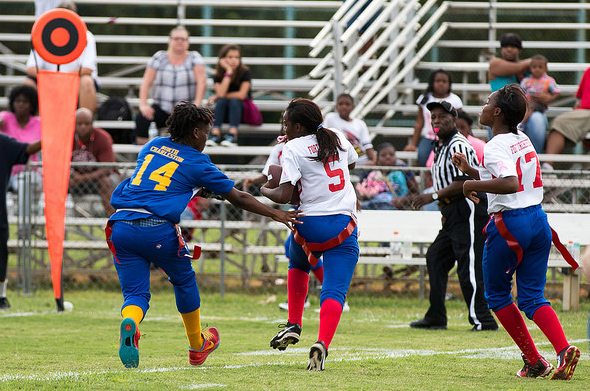H.S. Coach Of Paralyzed Rutgers Player Wonders How To Move Forward
Ben LaSala has coached high school football — lived high school football, really — for nearly 30 years. And he has no idea how he will keep coaching it now.
He thinks about that next meeting with his players. What will he say? He thinks about that next tackling drill at practice. How will he watch? He thinks about his next game at Colonia High.How will he coach?
“I’ve thought about it a lot the last couple days,” LaSala said. “I don’t even know how I’m going to deal with this. I’ve been doing this a long time, and you see stuff happen that’s part of football.
“But then it happens to one of your own. I’ve had somebody tell me to be positive, and I’m a positive guy. But this is like a punch to the face. I can’t tell you how I’m going to go out and coach.”
LaSala coached Eric LeGrand at Colonia High for four seasons, but the relationship became much more than that. His son, Joseph, is LeGrand’s best friend. LaSala would wake up some mornings and serve the big Rutgers nose tackle breakfast, marveling at his ever-present smile.
The coach went to visit his former player Sunday morning at Hackensack University Medical Center. He stood next to his hospital bed and held his hand, wondering how the most positive kid he had ever coached would respond to this devastating news: He was paralyzed from the neck down.
“He was trying to give me that smile,” LaSala said, his voice sounding tired from crying. “He was actually thanking people for coming to visit him. I mean, can you imagine?”
LaSala, like everyone who knew LeGrand in Colonia or at Rutgers, is hoping for a miracle now.
Maybe he’ll become another inspiring story, like former Buffalo Bills tight end Kevin Everett, who suffered a serious spine injury on a kickoff return in 2007 but is walking now.
Maybe, as Rutgers coach Greg Schiano predicted, “Eric LeGrand is going to walk on that field with us again.”
But it is hard not to do soul searching at a time like this, and not just for coaches and players.
For everyone.
We build billion-dollar stadiums for this sport and dedicate countless hours to watching it. We have elevated it beyond baseball as our national pastime, and that intensity trickles down from the pros to Pop Warner.
We see player after player carted off the field with serious knee injuries. We hear story after story about former wide receivers who can’t go a day without piercing headaches from concussions.
We watch a college student who just turned 20 last month carted off the field after a split-second collision that will change his life forever. LeGrand is just another casualty of a brutal sport.
You wonder: How much violence are we willing to live with in the name of entertainment?
LaSala has asked himself that question since his cell phone starting ringing late Saturday afternoon, with one former player after another calling with the news. It hasn’t stopped since.
He will call his players for a meeting 10 minutes after the school day begins today. Most of them know LeGrand personally, and those who don’t know the legacy he left behind.
“If you don’t want to play, I understand. I’m not going to tell you to play,” LaSala said. “I’ve got some coaches on my staff who don’t think they’re going to coach because of this.”
LaSala, the head coach at Colonia for 16 years, also has a decision to make. He knows the good the sport has done for many of his former players. He knows how much LeGrand himself loved playing it.
Then he thinks about that smiling kid, more than a former player, lying in that hospital bed. He
hasn’t seen the play that put him there. He said he will never watch that play.
But he’ll see dozens of plays just like it every time he steps on the field. Will he think about Eric LeGrand each time?
How will he coach?
“If I go to that tackling station on Wednesday, I know I’m going to be shaking,” the coaching lifer said. “I don’t know what the right answer is here. I just don’t know.”







